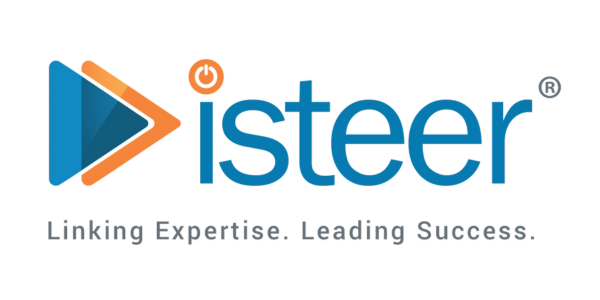In today’s fast-paced business environment, efficient IT solutions are crucial for maintaining competitiveness and driving growth. As businesses increasingly rely on technology to streamline operations and enhance productivity, adopting smarter IT practices becomes imperative. This blog explores key strategies and best practices to maximize efficiency through modern IT solutions.
Efficient IT solutions are the backbone of modern business operations, enabling organizations to optimize processes, improve collaboration, and deliver superior customer experiences. However, businesses often face challenges such as outdated systems, cybersecurity threats, and inefficient workflows that hinder productivity and innovation.
Identifying Challenges and Aligning Resources
To address these challenges effectively, businesses must conduct thorough assessments to identify IT pain points and align resources accordingly. This involves evaluating current systems, assessing manpower capabilities, and identifying gaps in software and tools. By aligning IT resources with larger business goals, organizations can prioritize investments and initiatives that yield maximum efficiency gains.
Adopting Modern Methods: Cloud Computing and Automation
Modern IT solutions like cloud computing and automation play pivotal roles in enhancing operational efficiency.
Cloud Computing
Cloud computing enables scalable storage, seamless collaboration, and remote accessibility, reducing infrastructure costs and enhancing flexibility. It allows businesses to quickly adapt to changing demands without the need for significant capital investments.
Enterprise Automation
Automation streamlines repetitive tasks, accelerates workflows, and minimizes errors, freeing up human resources for strategic initiatives. Tools like robotic process automation (RPA) can handle data entry, scheduling, and email management more efficiently than human employees.
Best practices include integrating these technologies seamlessly into existing IT infrastructures, ensuring robust data security measures, and fostering a culture of continuous improvement.
Ensuring robust security systems
A strong security system is essential for protecting sensitive data and defending against cyber threats. Using multiple layers of security, regularly checking for vulnerabilities, and training employees on cybersecurity best practices help reduce risks and ensure compliance with data protection laws.
Harnessing the power of data analytics
Data analytics empowers businesses to derive actionable insights for informed decision-making and process optimization:
- Informed Decision-Making: Utilizing data-driven insights to predict trends, understand customer behavior, and optimize resource allocation.
- Optimizing Business Processes: Applications span across marketing effectiveness, supply chain management, customer service enhancement, and financial forecasting.
Leveraging AI for continuous improvement
Incorporating AI into your business isn’t a one-time effort. It’s a continuous process of improvement and adaptation. Here are additional ways AI can contribute to your business’s ongoing success:
- Automating Repetitive Tasks: AI-powered tools, such as RPA, can handle tasks with greater accuracy and speed, freeing up your workforce for strategic activities.
- Enhancing Decision-Making with Data Analytics: AI processes and analyzes vast amounts of data much faster than humans, providing deeper insights into market trends, customer behavior, and operational efficiency.
- Improving Customer Service with Chatbots: AI chatbots provide 24/7 customer support, improving customer satisfaction and reducing the workload on customer service teams.
- Streamlining Supply Chain Management: AI predicts demand, optimizes routes, and manages inventory, helping businesses maintain optimal stock levels and reduce waste.
- Enhancing Human Resources Management: AI-powered tools streamline HR processes such as recruitment, onboarding, and performance evaluation.
- Boosting Marketing and Sales Efforts: AI personalizes customer experiences, automates email marketing campaigns, and optimizes pricing strategies.
- Ensuring Cybersecurity: AI detects unusual patterns and potential threats in real-time, allowing businesses to respond promptly to security breaches.
- Enhancing Product Development: AI accelerates the product development cycle by analyzing customer feedback, market trends, and competitor products.
- Optimizing Energy Management: AI monitors and analyzes energy usage patterns, predicting future consumption and optimizing energy usage in real-time.
- Enhancing Financial Management: AI provides accurate and real-time insights into financial performance, automating financial reporting and fraud detection.
- Fostering Innovation and Creativity: AI augments human creativity by providing new tools and methods for problem-solving.
- Personalizing Employee Training and Development: AI tailors training programs to individual employees’ needs, ensuring the continuous development of relevant skills.
Key Considerations for Implementing AI
To effectively implement AI solutions, businesses must consider several key factors:
- Data Quality and Management: Ensuring data is accurate, clean, and well-organized is crucial for AI systems to function effectively.
- Talent and Skills Development: Investing in training for existing employees and hiring new talent with expertise in AI and data science is essential.
- Ethical and Responsible AI: Ensuring AI systems are transparent, and unbiased, and respecting user privacy is crucial for maintaining trust and integrity.
- Scalability and Flexibility: Choosing AI platforms and tools that can grow with your business ensures long-term viability and cost-effectiveness.
- Integration with Existing Systems: Ensuring compatibility and smooth data flow between AI tools and legacy systems maximizes the benefits of AI.
Looking Ahead
Efficient IT solutions are crucial for boosting productivity, streamlining operations, and improving customer experiences. Using cloud computing, automation, strong security measures, and data analytics helps businesses stay efficient and agile in the digital world.
Integrating AI into business processes offers immediate benefits and prepares companies for the future. By exploring new AI applications, investing in resources, and committing to ethical practices, businesses can fully utilize AI’s potential. Maximizing efficiency with AI is an ongoing process, but with the right strategies and mindset, it can transform your business.
At iSteer, we specialize in empowering businesses with cutting-edge IT solutions tailored to optimize efficiency and drive growth. Contact us today to discover how our expertise can transform your IT infrastructure and propel your business forward.
To know more about data analytics, visit our website www.isteer.com or write to us at: sales@isteer.com







